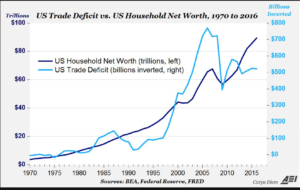Here’s a hot-off-the-press new paper by Phil Magness, Art Carden, and Vincent Geloso – a paper that further exposes the egregious errors in Nancy MacLean’s absurd and fabulist tale, Democracy in Chains. The title of the paper is “James M. Buchanan, Public Choice, and the Political Economy of Desgregation.” Here’s the abstract:
Recent historical works, most notably Democracy in Chains, advance the claim that 1986 Nobel Laureate James M. Buchanan developed his formative contributions to political economy amidst the segregationist response to the Brown v. Board of Education decision. This argument accordingly holds that the research agenda of public choice economics emerged from an opportunistic alliance with Virginia’s “Massive Resistance” to school integration, and should be situated within the racially tinged tradition of southern conservatism. While Buchanan wrote very little on the economics of race, an extensive review of archival evidence as well as his published works conclusively refutes this claimed association. Buchanan’s intellectual associations with Frank Knight, W.H. Hutt, and other economists who worked within anti-racist frameworks suggest that Buchanan did not see anything of value in segregation, even as a political vehicle for advancing his agenda. To the contrary, we show that Buchanan held an antipathetic view of segregation and believed that the competitive processes of an educational voucher system would undermine the “Massive Resistance” status quo. We accordingly reject the primary thesis of Democracy in Chains as the product of unsound and grossly misinformed research, and offer an alternative assessment of the position of race in the origins of public choice theory.


 Markets should never have been evaluated primarily and instrumentally for their ability as institutions to maximize pleasure over pain, or indeed to maximize anything else that is interpersonally comparable.
Markets should never have been evaluated primarily and instrumentally for their ability as institutions to maximize pleasure over pain, or indeed to maximize anything else that is interpersonally comparable.
 For as fast as the régime of contract is discarded the régime of status is of necessity adopted. As fast as voluntary co-operation is abandoned compulsory co-operation must be substituted. Some kind of organization labour must have; and if it is not that which arises by agreement under free competition, it must be that which is imposed by authority.
For as fast as the régime of contract is discarded the régime of status is of necessity adopted. As fast as voluntary co-operation is abandoned compulsory co-operation must be substituted. Some kind of organization labour must have; and if it is not that which arises by agreement under free competition, it must be that which is imposed by authority. Creating government schools violates basic principles of economics. First, it violates the notion of consumer sovereignty. Parents are told where their children are to go to school, what the curriculum will be, how many days the child must attend school each year, and which holidays will be observed. The unit of society patronized by government is the school, not the consumers of education. Schooling may be “free” but parents are not free to choose.
Creating government schools violates basic principles of economics. First, it violates the notion of consumer sovereignty. Parents are told where their children are to go to school, what the curriculum will be, how many days the child must attend school each year, and which holidays will be observed. The unit of society patronized by government is the school, not the consumers of education. Schooling may be “free” but parents are not free to choose.
 Now, here, is the normative contradiction that does confront anyone who takes a classical liberal position. Margaret Thatcher, as you recall, was roundly chastized for her statement that there is no society as such. Her intent in that statement was to suggest that only individuals offer loci of value and evaluation. But taken literally, there could then exist no national interest, not national purpose, no national vision – whether for Germany, the United States or any other nation-state or group thereof. Yet almost all commentators – academic and media alike – proceed as if such an aggregate of interest exists, and regardless of their own position on some ideological spectrum. It’s almost as if we are forced willy-nilly to adopt an organicist conception of society, while simultaneously mouthing individualist norms in our philosophies.
Now, here, is the normative contradiction that does confront anyone who takes a classical liberal position. Margaret Thatcher, as you recall, was roundly chastized for her statement that there is no society as such. Her intent in that statement was to suggest that only individuals offer loci of value and evaluation. But taken literally, there could then exist no national interest, not national purpose, no national vision – whether for Germany, the United States or any other nation-state or group thereof. Yet almost all commentators – academic and media alike – proceed as if such an aggregate of interest exists, and regardless of their own position on some ideological spectrum. It’s almost as if we are forced willy-nilly to adopt an organicist conception of society, while simultaneously mouthing individualist norms in our philosophies.
